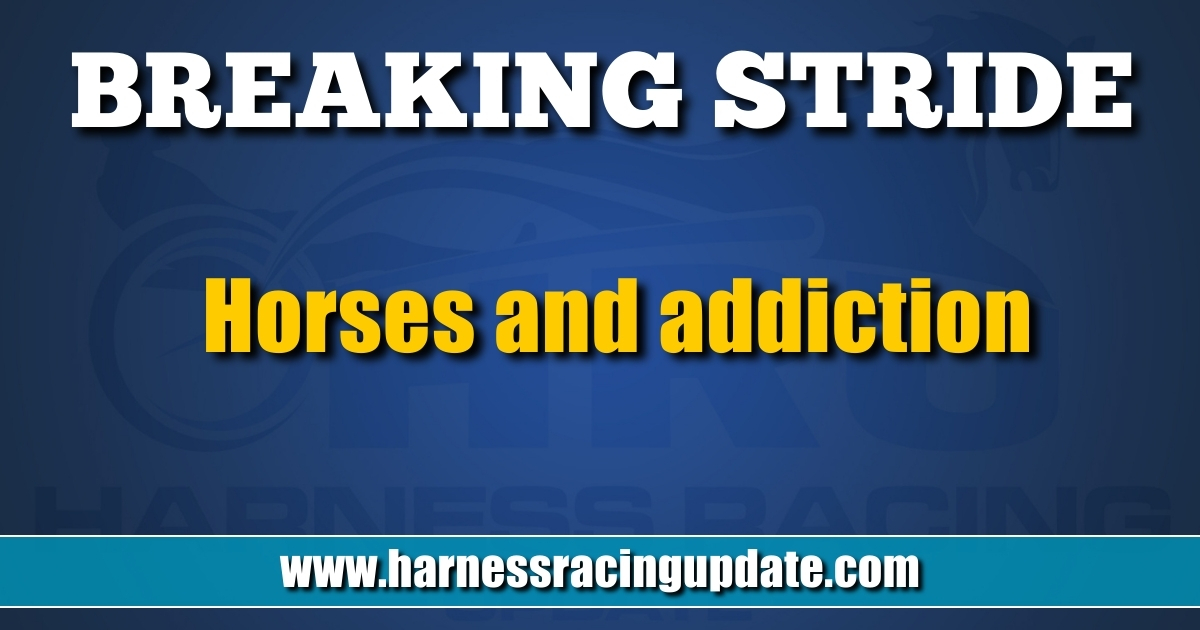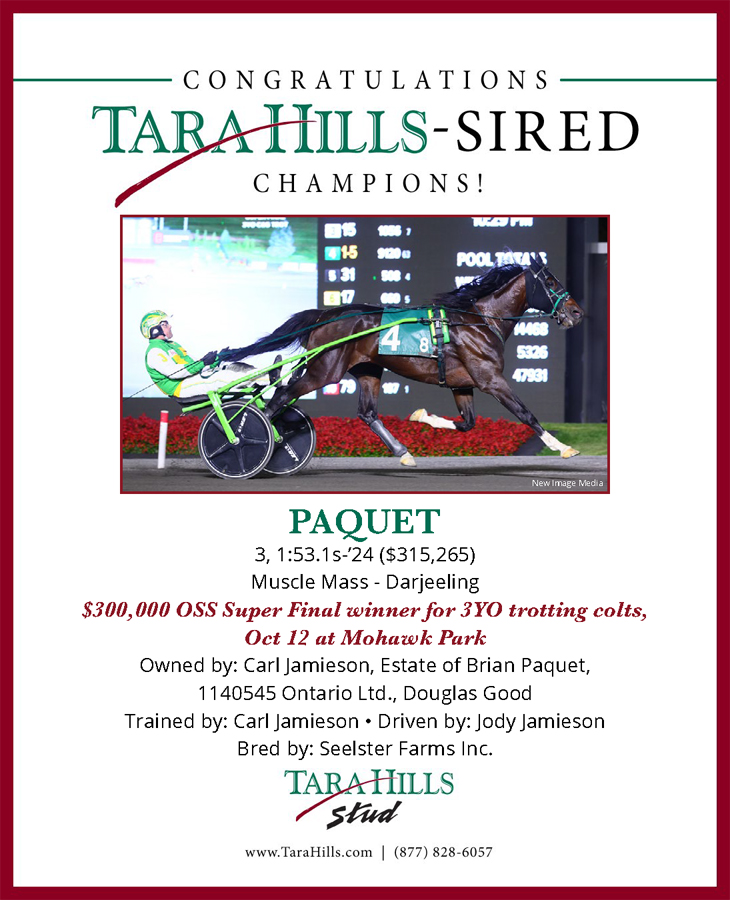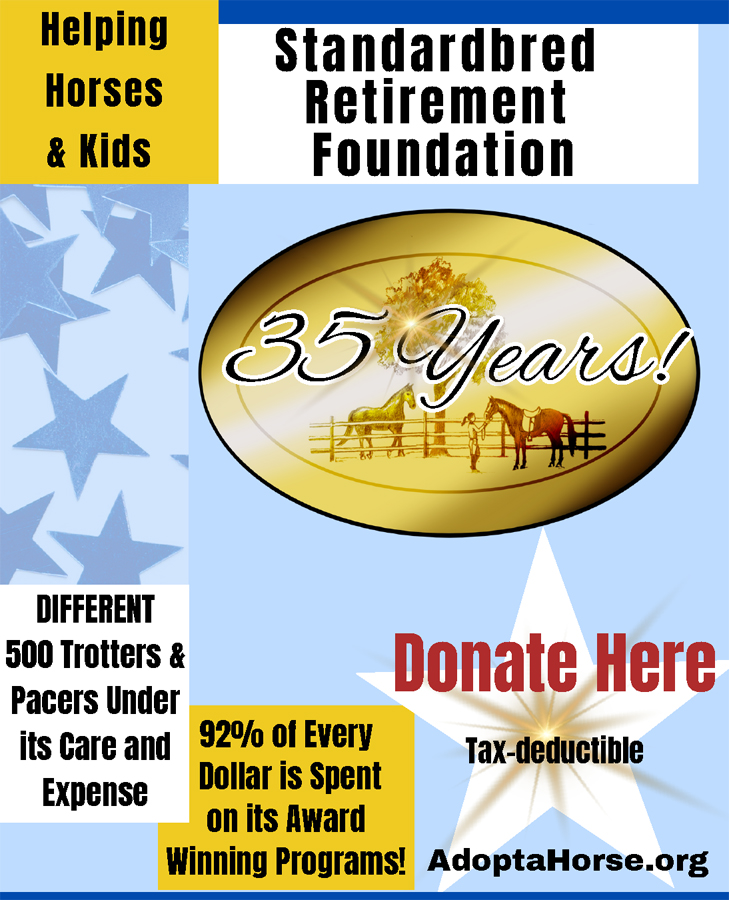

Horses and addiction
A series introduction.
by Trey Nosrac
The HRU editors have tolerated dabbling in contests, fiction, prose, book reviews, poetry, satire, playwriting, humor, scientific studies, serious essays, playful frolics, and outlandish concepts. Let’s push the envelope a little further.
The demand for good employees in harness horse racing
never ends. Finding and keeping responsible grooms, second trainers and barn workers is an ongoing problem. Good
workers for racetrack backstretches and training centers have great value. The pay is better than ever, and the job can be rewarding. But the days can be long, and a scarcity of employees remains.
Addictions are complex, messy and rampant. The heartbreak and expense for people with an addiction, their families, friends, and society are immeasurable. Of course, our sport is not exempt. The horse racing industry has its share of addiction. Treatment programs for drug and alcohol dependency are expensive crapshoots with disheartening success rates.
The underlying theme of a series beginning next week is that both problems could benefit from a symbiotic relationship, helping people with addictions recover by working with
horses in closely monitored mentoring programs. A situation like the one presented in the series could benefit people
with a substance use disorder, rehabilitation facilities and stables.
If you ever sat in a quiet horse barn early in the morning listening to a horse rustle in the straw, you understand the positive mindfulness and relaxation some of us feel with horses. Many of us believe there is truth in Winston Churchill’s old saying about the outside of horses being good for the inside of people.
Horses are mysterious creatures sensitive to the emotions and moods of humans. Horses can act as non-judgmental, non-verbal mirrors. Working with horses can be therapeutic for people with low self-esteem or lacking confidence, especially younger people. Equine therapy offers people with a substance abuse disorder a possible route away from addiction. Our backstretches could allow those struggling to learn new skills to address a challenging point in recovery, the day a patient in recovery walks out into the world on wobbly legs, brains in turmoil, without a job on their horizon.
For thousands of years, horses have shown therapeutic value. In today’s times, this wellness from horses uses a fancy name: equine-assisted psychotherapy. Studies demonstrate several benefits for addicted individuals: decreased anxiety, healthy sensory input, problem-solving, improved sense of control, agency, emotional regulation, and confidence. Studies show that horse therapy can be more effective than traditional talk therapy.
Working with horses is among the unique ways people struggling with addiction can develop new coping skills and insights into their behavior, especially if they are in a safe, monitored setting, removed from stress and triggers.
A series that concerns treatment options for addiction will begin next week. It will be presented in diary form from the point of view of a struggling addict. While semi-fictional, The Diary of Bridgette M is based on real addicts, similar programs, attendance at NA (Narcotics Anonymous) and AA (Alcoholics Anonymous) meetings, interviews, and tested therapies.
Every reader has unique eyes. The series may be a path to easing your problem with barn help or spur thoughts about a new outpatient program for a rehab administrator. You may read this through the eyes of a struggling addict or someone close to a person with an addiction. Maybe you are a philanthropic entrepreneur. Perhaps you are just curious. Hopefully, the series will be beneficial and shared outside our racing community.
A bright spot in the dark subject of addiction is that recent class action suits against large pharmaceutical companies have resulted in massive settlements with funding earmarked for state and local addiction programs and therapies. If you feel a program along these lines is feasible, Federal and state funding grants for programs to fight against addiction are plentiful.
This series is not a fairy tale with a happy ending. The road to recovery is long, messy, and fragile. As people with an addiction often say, there is no complete recovery, only remission, and sometimes caskets.
Next week, The Diary of Bridgette M., Part 1.















